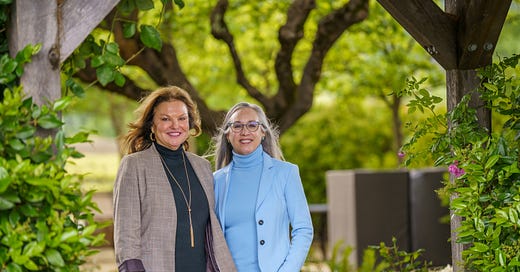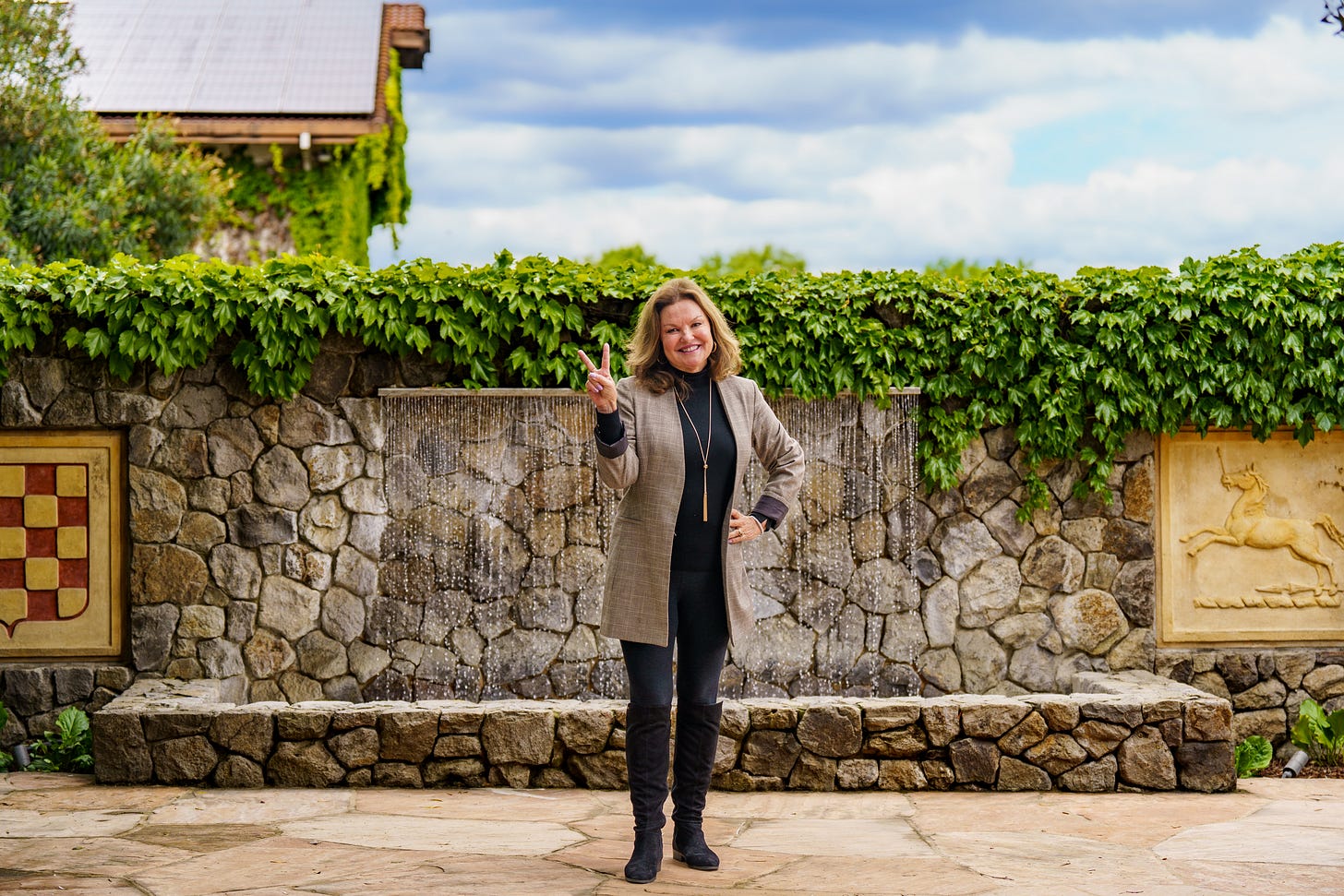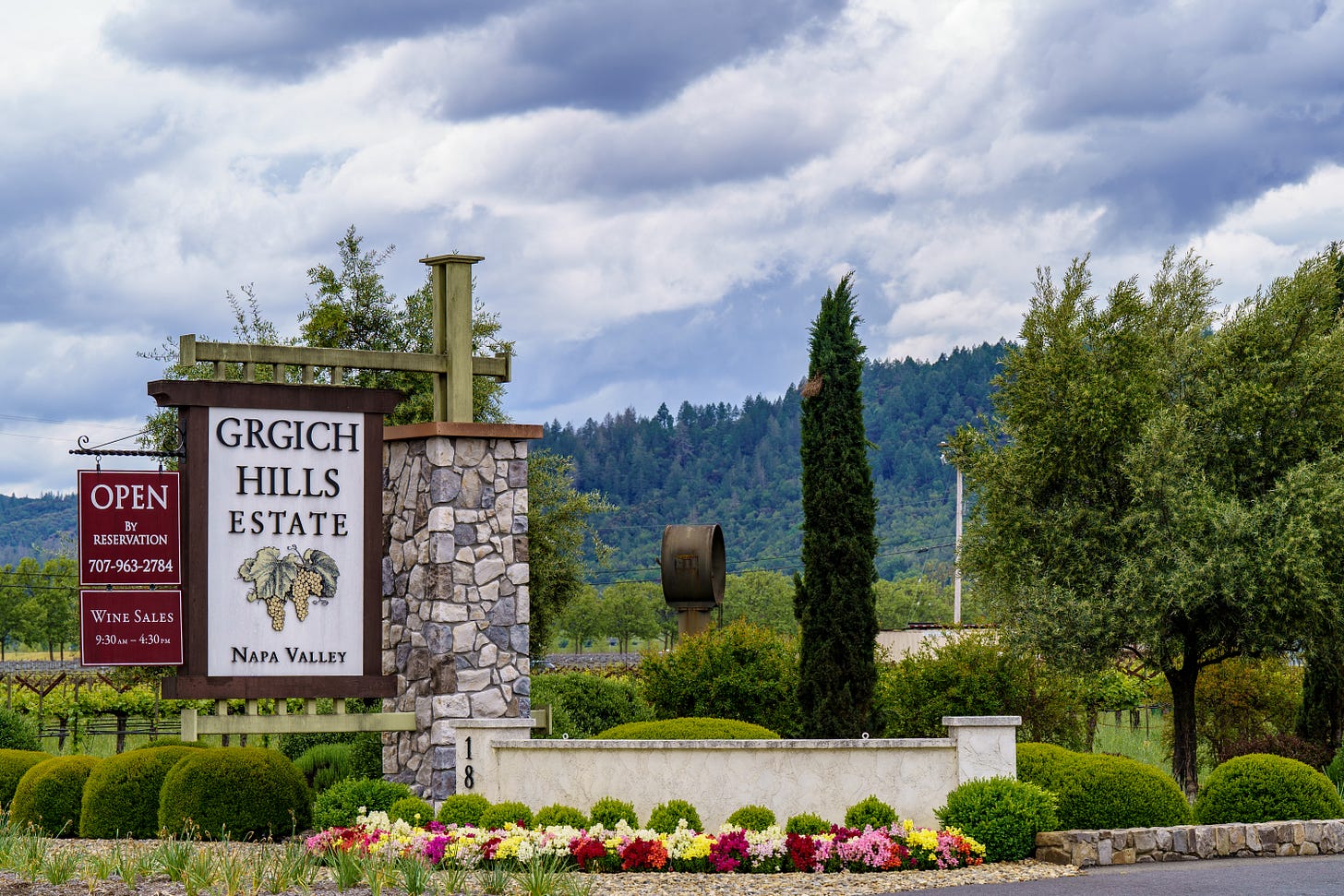Mother’s Day celebrations conjure images of Sunday brunches and bouquets of roses, but Heidi Kuhn, mother of four and grandmother of six, has a different plan: She will be blowing up landmines in Azerbaijan.
Kuhn is founder of Roots of Peace, which for the past 25 years has worked to de-mine war-torn countries and rehabilitate the land for agriculture.
The Marin resident was in Napa Valley last week to meet with one of her staunchest supporters, Violet Grgich, president of Grgich Hills Estate winery in Rutherford.
“We’re both mothers; we get it,” said Kuhn. “We care about the earth.”
Kuhn, a self-described “soccer mom,” might have been an unlikely prospect to launch a humanitarian organization and travel the world meeting with farmers, families and foreign leaders to build support for a cause so far removed from a comfortable California home. But the genesis of Roots of Peace was a promise. In the 1990s, when Kuhn was 30 years old and the mother of three children, ages 1, 3 and 5, she was diagnosed with cervical cancer and told she needed immediate surgery.
“I remember before I went under the knife I just said, ‘Dear God, grant me the gift of life and I will do something,’” Kuhn said.
She had beaten the cancer and given birth to her fourth child when she discovered what that something would be. Watching news clips of Diana, Princess of Wales, walking through a field in Angola in 1997, Kuhn found herself thinking about the people who lived there, “children who couldn’t just run and kick a soccer ball without the danger of losing a leg” as well as farmers who couldn’t safely work their fields. After Diana’s death, Kuhn, searching for a way to continue her work, hosted a dinner for Jody Williams and others who would soon win the 1997 Nobel Peace Prize for their work with the International Campaign to Ban Landmines.
“I remember sitting at the table, raising my glass and saying, ‘May the world go from mines to vines.’” Kuhn said. “And that’s where the journey began. It was deep in my heart because I thought ‘Cancer is a landmine, and landmines are a cancer in the earth.’ It was a very simple thought in my head. I have to remove this cancer and plant peace through agriculture.”
Kuhn turned to California wine country for support for her plan and found it with Napa Valley vintners, including Robert Mondavi, Francis Ford Coppola and Tor Kenward, as well as Eric Wente from Livermore. Her husband, Gary, held down the home while she traveled to Ottawa, where the 1997 Mine Ban Treaty was signed. The treaty is a legally binding international agreement that bans the use, production, stockpiling and transfer of mines and requires countries to clear affected areas, assist victims and destroy stockpiles. (The United States, Russia, China and a few other countries have not yet signed it.)
“When I came back, people told me you have to meet this guy, Mike Grgich,” Kuhn said.
At a dinner at Hurley’s Restaurant in Yountville she found herself seated next to “the most famous vintner in the world,” Miljenko “Mike” Grgich, who had made the white wine that won the 1976 Judgment of Paris and put Napa Valley on the world wine map. (Warren Winiarski of Stags’ Leap Wine Cellars made the red winner.) Grgich had arrived in Napa Valley in 1954, a refugee from Croatia, then part of communist Yugoslavia. They talked about how his homeland had further suffered from the wars that began in 1991 as the Soviet empire broke up. The wars may end, but the landmines remain in the ground.
“He listened,” Kuhn said. “He listened intently, and he said, ‘We have to do something about this.’”
In 2000 Grgich traveled with her to Croatia.
“He walked a minefield with me,” Kuhn said. He went on to become a major supporter, hosting fundraisers for the fledgling Roots of Peace. “I owe tremendous thanks to these vintners.”
Twenty-five years later Roots of Peace is an international organization working in 10 countries, including Cambodia, Israel, Vietnam, Azerbaijan and Afghanistan.
“Roots of Peace evolved from landmines to our forte, which is restoring the earth, healing the earth through regenerative agriculture. It’s peace through agriculture,” Kuhn said.
“I give tremendous thanks to my husband, who added his business expertise,” she said. “The preamble of peace, yes, is the removal of landmines, but it’s so much more that comes after that, helping farmers to replant and then get their crops to markets. It’s ‘going back to the past, looking to the future,’” Kuhn said, by doing things such as building cold-storage refrigeration as they did in Afghanistan, where the Taliban has allowed Roots of Peace to continue to work even after the U.S. troop withdrawal in 2022.
“Afghanistan was the most heavily mined country in the world,” Kuhn noted. “They were bombed into the Stone Age. But they have the potential to build back, to export crops to India and China.
“The full circle of de-mine, replant and rebuild is a business mode. This is the economics of peace: Dig out the landmines, turn the guns into shovels, the swords into plowshares, the spears in to pruning hooks. So that ‘nation shall not lift up sword against nation; neither shall they learn war any more. Period.”
The Grgich connection
At 95, Mike Grgich handed the leadership of the winery he co-founded with Austin Hills in 1977 over to his daughter.
“He said, ‘I guess you’re OK,’” she quipped.
This year as Mike celebrates his 100th birthday, Violet Grgich is continuing his support of Roots of Peace. In December she and Kuhn co-hosted the first Festival of the Bells, marking the 25th anniversary of the organization. Among the guests was Dmytro Kushneruk, counsel general for Ukraine in San Francisco.
“We have a long history together,” Grgich said. “Both my parents have always been very philanthropic and cared about other people. Peace and vision were at the top of their list,”
“It’s something very deep and meaningful, the fact that you started in Croatia, where both my mom and dad went through World War II — and barely escaped with their lives,” Grgich told Kuhn. “Americans don’t know what that’s like. When you have lived through something like that you have a very different view of life. I remember the stories my parents told me.
“Being in agriculture, removing the mines is important, but what’s even more important are the vines,” Grgich added.
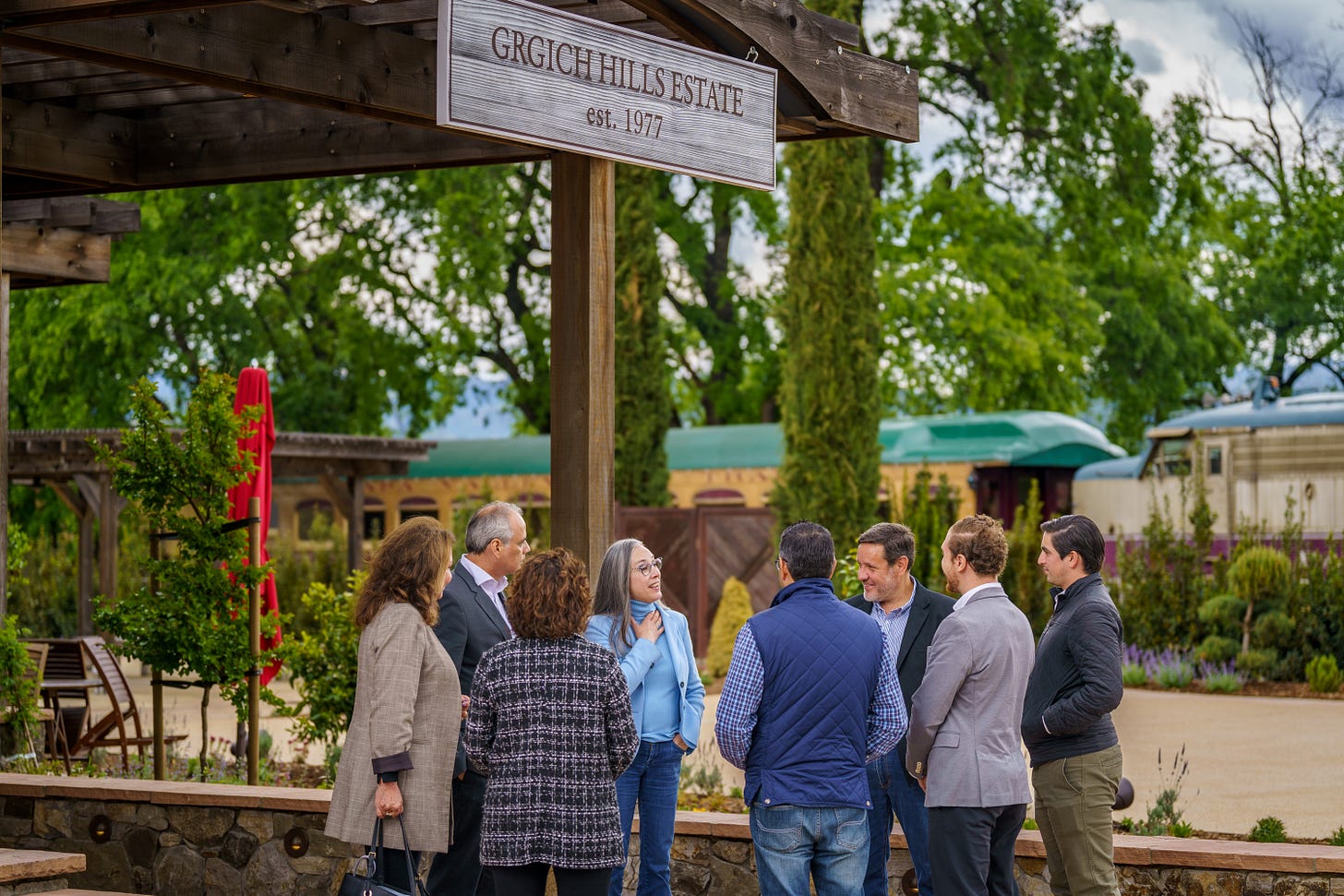
Their May meeting represented yet another aspect of the work of Roots of Peace. A delegation from the Guatemala consulate in San Francisco was coming to the winery but not to talk about landmines; their country, fortunately, hasn’t this to contend with. Instead they are working on a collaboration to help Guatemalan farmers establish best practices, learning from leaders in sustainable farming such as Ivo Jeramaz, Violet Grgich’s cousin from Croatia, who is winemaker and vice-president of the winery.
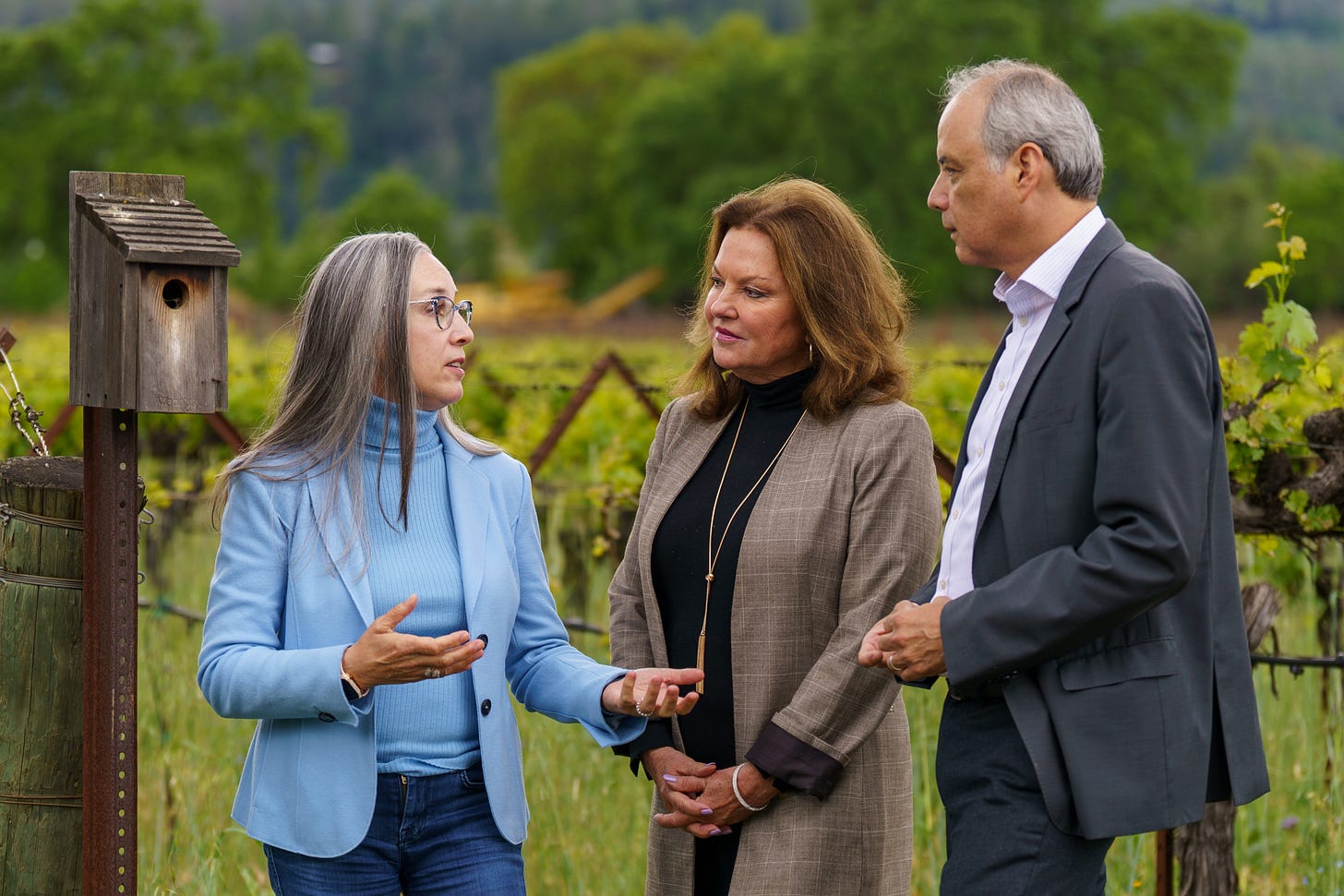
Roots of Peace is currently funding a $250,000 two-year grant to expand successful demonstration plots and help 220 Guatemalan farmers install irrigation systems and create a second crop cycle per year.
“This will improve their income up to $9,000 per hectare while still maintaining their food-security crops,” Kuhn said.
The goal is to create “economic security as a solution for farmers who otherwise would resort to immigration to the U.S.,” Kuhn said. “Strong market connections will enable farmers to stay in their homeland.”
Grgich added, “You help them, you teach them modern ways of going to the market. What crops are you growing? Let’s look for a better way. This is how you package it. Let’s connect you with people who can buy it. All of this is about life and the continuation of life. And peace, literally peace through agriculture.”
Both Grgich and Kuhn believe strongly in respectful, cross-cultural collaboration. Grgich Hills Estate winery has celebrated its Croatian connections since its founding. For Kuhn, a fifth-generation Californian, her work has been a process of continually learning about the world.
“In Afghanistan,” she recalled, “the first year we planted grapevines with wooden stakes. When we went back the next year, the stakes were gone. What had happened? People told us it had been the coldest winter on record and if they had not burned the stakes for firewood, their children would have died. So we figured out how to make cement stakes for the vines and we learned that we have to listen, listen, listen. It’s really working together,” Kuhn said. “That’s the model, it’s the hope.”
Looking back over her quarter-century of work, however, she said, “Sadly, today there are more landmines, there’s more war.”
She quoted estimates that 60 million landmines remain in the ground in 60 countries around the world, “and the number is going up. It costs $3 to put a mine in the ground, about $1,000 to take out.”
Looming heavy on the outlook is Ukraine, where even as the invasion by Russia continues, Roots of Peace is establishing contacts to begin landmine removal so farmers can begin to restore what was called “the breadbasket of Europe.”
“You can’t do something about tactical nuclear warfare,” Kuhn said, “but you can get those mines out and you can get the vines growing.”
With that, Kuhn headed off to Azerbaijan.
“I can’t think of a better way to spend Mother’s Day,” she said. “We’ll detonate a mine and then we will plant a tree.”
To learn more or to make a donation to Roots of Peace, visit www.rootsofpeace.org.


